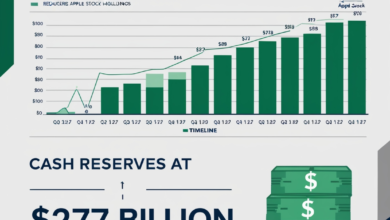Score Big with Your Credit: Tips for a Stronger Financial Future

Your credit score may seem like just a three-digit number, but it has a significant impact on your financial health. It can determine your eligibility for loans, credit cards, and even impact your ability to rent an apartment or get a job. Despite its importance, many people are still confused about how credit scores work and how to improve them. That’s why in this blog post, we will demystify credit scores and provide you with practical tips to boost your financial health today. So, get ready to score big with your credit and pave the way towards a stronger financial future.
1. Understanding the Importance of Credit Scores
Your credit score is not just a number; it is a reflection of your financial health and stability. It holds immense importance and can impact various aspects of your life. Understanding the importance of credit scores is crucial for taking control of your financial future and making informed decisions.
First and foremost, your credit score plays a significant role in determining your eligibility for loans and credit cards. Lenders use your credit score to assess your creditworthiness and determine the terms and interest rates they will offer you. A higher credit score means better loan options and lower interest rates, which can save you a substantial amount of money over time.
Additionally, your credit score can also affect your ability to rent an apartment or get a job. Landlords often run credit checks on potential tenants to evaluate their reliability and ability to pay rent on time. Likewise, some employers conduct credit checks during the hiring process to gauge an applicant’s financial responsibility and trustworthiness. A poor credit score can hinder your chances of securing a desirable rental property or landing a job opportunity.
Moreover, credit scores are not static; they can change over time based on your financial behavior. Consistently making payments on time, keeping your credit card balances low, and maintaining a healthy mix of credit accounts can positively impact your credit score. On the other hand, late payments, maxing out your credit cards, and closing accounts can have a negative effect.
By understanding the importance of credit scores, you can take proactive steps to improve and maintain a healthy score. It involves responsible financial management, such as budgeting, paying bills on time, and monitoring your credit report for errors or suspicious activity. Regularly reviewing your credit report can help you catch any inaccuracies that could be negatively impacting your score and take necessary steps to correct them.
2. Factors that Impact Your Credit Score
Your credit score is influenced by various factors, and understanding these factors is key to managing and improving your score. Here are some key factors that can impact your credit score:
1. Payment History: Your payment history is one of the most critical factors in determining your credit score. Making payments on time and in full consistently is essential for maintaining a good credit score. Late payments, delinquencies, and accounts in collections can all have a negative impact on your credit score.
2. Credit Utilization: Credit utilization refers to the amount of credit you are using compared to your available credit. It is recommended to keep your credit utilization below 30%. Maxing out your credit cards or carrying high balances can lower your credit score.
3. Length of Credit History: The length of your credit history also affects your credit score. Generally, a longer credit history is seen as more favorable, as it provides a more accurate picture of your creditworthiness. If you are just starting to build your credit, it’s important to establish a solid credit history by using credit responsibly over time.
4. Credit Mix: Having a mix of different types of credit accounts, such as credit cards, loans, and a mortgage, can positively impact your credit score. It demonstrates your ability to manage various types of credit responsibly. However, it’s important to note that opening multiple accounts just to increase your credit mix can have a negative impact on your credit score in the short term.
5. New Credit Applications: Applying for new credit can have a temporary negative impact on your credit score. When you apply for credit, a hard inquiry is placed on your credit report, which can lower your score. It’s best to only apply for credit when necessary and avoid multiple applications within a short period.
6. Negative Information: Negative information, such as bankruptcies, foreclosures, and tax liens, can have a significant and long-lasting impact on your credit score. It’s important to address and resolve any negative information on your credit report as soon as possible.
By understanding these factors, you can take proactive steps to manage and improve your credit score. It’s crucial to consistently make payments on time, keep your credit utilization low, and maintain a healthy mix of credit accounts. Regularly reviewing your credit report and addressing any errors or negative information can also help you maintain a healthy credit score.
3. Practical Steps to Boosting Your Credit Score
Now that you understand the importance of credit scores and the factors that can impact them, let’s dive into some practical steps you can take to boost your credit score and improve your financial health.
1. Pay Your Bills on Time: One of the most crucial steps in improving your credit score is making payments on time. Late payments can have a significant negative impact on your credit score, so it’s essential to stay on top of your due dates. Set up reminders, automate your payments, or create a budget to ensure you can pay your bills on time consistently.
2. Reduce Your Debt: High levels of debt can weigh down your credit score. To improve it, focus on reducing your overall debt. Start by creating a budget and allocating extra funds towards paying down your debt. Consider using the debt snowball or debt avalanche method to prioritize paying off high-interest debt first. By reducing your debt, you can lower your credit utilization and demonstrate responsible financial management.
3. Avoid Closing Credit Accounts: While it may be tempting to close unused credit accounts, doing so can actually harm your credit score. Closing accounts reduces your overall available credit, which can increase your credit utilization ratio. Instead, keep those accounts open and occasionally use them to make small purchases and pay them off in full.
4. Build a Positive Credit History: Building a positive credit history takes time, but it’s essential for boosting your credit score. Start by opening a secured credit card or becoming an authorized user on someone else’s credit card. Make small purchases and pay them off in full each month to establish a track record of responsible credit usage.
5. Monitor Your Credit Report: Regularly checking your credit report allows you to identify any errors or discrepancies that may be negatively impacting your credit score. You can request a free copy of your credit report from each of the three major credit bureaus once a year. If you spot any errors, be sure to dispute them and have them corrected as soon as possible.
Boosting your credit score requires commitment and discipline, but the rewards are well worth it. By implementing these practical steps, you can improve your creditworthiness, qualify for better loan terms and interest rates, and pave the way for a stronger financial future. Remember, building a good credit score takes time, so be patient and stay consistent with your efforts.
4. The Role of Debt Management in Enhancing Creditworthiness
Debt can be a burden that weighs us down, but when managed properly, it can also be a tool for enhancing our creditworthiness. In this section, we will explore the role of debt management in improving your credit score and setting you on the path to financial success.
One important aspect of debt management is understanding the difference between good debt and bad debt. Good debt is generally considered to be debt that is taken on for investments that have the potential to increase in value over time, such as a mortgage for a home or a student loan for education. Bad debt, on the other hand, is debt incurred for unnecessary or frivolous expenses, such as credit card debt from shopping sprees.
To enhance your creditworthiness, it’s crucial to prioritize paying off high-interest debt first. By reducing your overall debt and paying off high-interest balances, you not only lower your credit utilization ratio but also demonstrate responsible financial management. This shows lenders that you are capable of handling your financial obligations and increases your chances of being approved for loans with favorable terms and interest rates.
In addition to paying off debt, it’s essential to make all of your debt payments on time. Payment history plays a significant role in determining your credit score, and consistently making payments on time shows lenders that you are reliable and trustworthy. Consider setting up automatic payments or creating a budget to ensure that you never miss a payment.
Another key aspect of debt management is avoiding unnecessary new debt. Taking on too much new debt, especially within a short period, can negatively impact your credit score. Lenders may view it as a sign of financial instability or a potential inability to manage your debt load. Instead, focus on managing your existing debt and only taking on new debt when necessary.
Overall, debt management plays a crucial role in enhancing your creditworthiness. By prioritizing paying off high-interest debt, making payments on time, and avoiding unnecessary new debt, you can significantly improve your credit score and increase your chances of securing favorable loan terms and interest rates.
In the next section, we will discuss long-term strategies for maintaining a healthy credit score.
5. Long-term Strategies for Maintaining a Healthy Credit Score
When it comes to credit scores, it’s not just about boosting them in the short term. Long-term strategies for maintaining a healthy credit score are equally important. By implementing these strategies, you can ensure that your credit score remains strong and your financial health continues to improve over time.
One of the key long-term strategies is to consistently make payments on time. Payment history is a major factor in determining your credit score, and consistently paying your bills on time demonstrates your financial responsibility. Set up reminders or automate your payments to ensure you never miss a due date.
Another strategy is to keep your credit utilization low. Aim to use no more than 30% of your available credit at any given time. This shows lenders that you are using credit responsibly and not relying too heavily on borrowed funds. Paying off your credit card balances in full each month is a great way to keep your credit utilization low.
Additionally, it’s important to avoid closing credit accounts unnecessarily. Closing accounts can negatively impact your credit score by reducing your overall available credit. Instead, keep those accounts open and occasionally use them for small purchases, then pay them off in full. This demonstrates that you can manage credit responsibly over the long term.
Regularly monitoring your credit report is another essential strategy. Reviewing your report allows you to catch any errors or discrepancies that may be negatively impacting your credit score. By addressing and resolving these issues promptly, you can maintain a healthy credit score and avoid any surprises when you apply for credit in the future.
Lastly, consider diversifying your credit mix over time. Having a mix of different types of credit accounts, such as credit cards, loans, and a mortgage, can positively impact your credit score. It shows lenders that you can handle various types of credit responsibly. However, remember to only take on new credit when necessary and avoid opening multiple accounts within a short period.
By following these long-term strategies, you can maintain a healthy credit score and set yourself up for financial success. Remember, building a good credit score takes time, so be patient and stay committed to responsible financial habits.
6. Mistakes to Avoid That Could Damage Your Credit Score
We’ve covered a lot about how to improve and maintain a healthy credit score, but now let’s take a look at some common mistakes that could harm your credit score. By avoiding these pitfalls, you can protect your creditworthiness and continue on the path towards financial success.
One of the biggest mistakes you can make is consistently missing payments or making late payments. Your payment history plays a significant role in determining your credit score, so it’s crucial to always pay your bills on time. Set up reminders or automate your payments to avoid any slip-ups.
Another mistake to avoid is maxing out your credit cards or carrying high balances. Your credit utilization ratio, which compares your credit card balances to your available credit, should ideally be below 30%. Maxing out your credit cards or having high balances can negatively impact your credit score. Aim to keep your balances low and pay them off in full each month.
Closing credit accounts unnecessarily is another mistake that can damage your credit score. When you close an account, it reduces your overall available credit, which can increase your credit utilization ratio. Instead, keep those accounts open and occasionally use them for small purchases, then pay them off in full. This shows lenders that you can manage credit responsibly over the long term.
Applying for multiple new credit accounts within a short period is also a mistake that can harm your credit score. Each time you apply for credit, a hard inquiry is placed on your credit report, which can lower your score. It’s best to only apply for credit when necessary and avoid multiple applications in a short period.
Finally, failing to regularly monitor your credit report can be a costly mistake. By reviewing your report, you can catch any errors or discrepancies that may be negatively impacting your credit score. If you spot any errors, be sure to dispute them and have them corrected as soon as possible.
By avoiding these common mistakes, you can protect your credit score and maintain a strong financial foundation. Remember, a good credit score opens up opportunities for better loan terms and interest rates, so it’s worth taking the time and effort to protect and improve your creditworthiness. Stay vigilant, stay disciplined, and watch your credit score soar.
7. Making the Most of Your Improved Credit Score – Investment and Loan Opportunities
Congratulations! You’ve taken the necessary steps to improve your credit score and boost your financial health. Now it’s time to make the most of your improved credit score and explore the investment and loan opportunities that come with it.
With a higher credit score, you’ll have access to better loan options and interest rates. This means that you can secure loans for major purchases, such as a new car or a home, at more favorable terms. A higher credit score also increases your chances of getting approved for loans and credit cards, giving you the flexibility to pursue your financial goals.
When it comes to investments, having a strong credit score can open doors to new opportunities. Whether you’re interested in real estate, stocks, or starting your own business, a good credit score can make a significant difference. Investors and lenders are more likely to take you seriously and offer you favorable terms when you have a track record of responsible financial management.
Furthermore, a strong credit score can give you access to higher credit limits on your credit cards. This can be beneficial if you’re looking to make large purchases or have unexpected expenses. With a higher credit limit, you have more flexibility and can take advantage of opportunities as they arise.
It’s important to remember that while an improved credit score opens up new possibilities, it’s essential to continue practicing responsible financial habits. Make sure to budget wisely, make payments on time, and avoid taking on more debt than you can handle. Building and maintaining a good credit score is an ongoing process, and it’s important to stay committed to your financial goals.
In conclusion, a strong credit score provides you with the foundation to make the most of investment and loan opportunities. With better loan options and favorable interest rates, you can make major purchases and pursue your financial goals with confidence. Additionally, a good credit score gives you access to higher credit limits and opens doors to new investment opportunities. Keep practicing responsible financial habits, and your credit score will continue to pave the way towards a brighter financial future.


